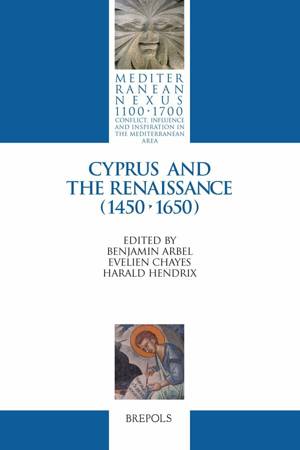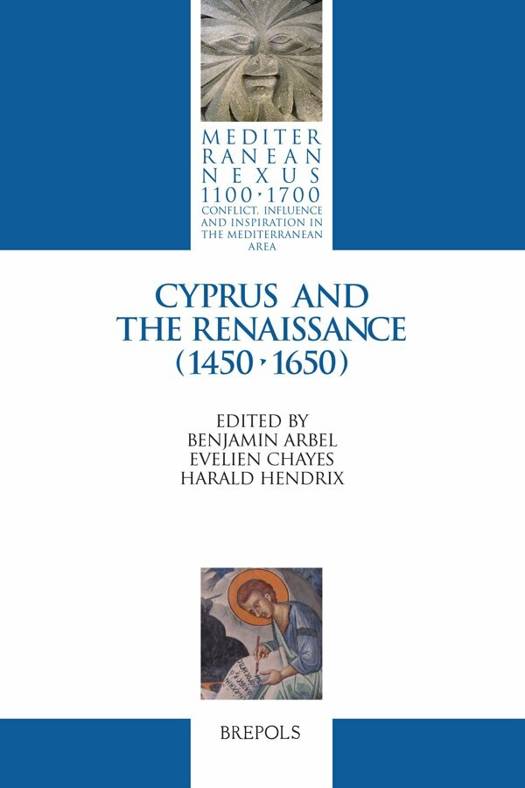
- Afhalen na 1 uur in een winkel met voorraad
- Gratis thuislevering in België vanaf € 30
- Ruim aanbod met 7 miljoen producten
- Afhalen na 1 uur in een winkel met voorraad
- Gratis thuislevering in België vanaf € 30
- Ruim aanbod met 7 miljoen producten
Zoeken
MEDNEX 01 Cyprus and the Renaissance (1450-1650), Arbel, Chayes, Hendrix
Benjamin Arbel
Hardcover | Engels
€ 121,90
+ 243 punten
Omschrijving
These twelve essays by leading scholars in the field are products of an international research project on early modern Cyprus and its relation to cultural developments in the West, started in November 2009. Cyprus, an independent 'Frankish' kingdom from 1191 to 1473, became a Venetian protectorate, then, in 1489, a Venetian colony until its conquest by the Ottomans in 1570. Its population was diverse and rich in religious experience - preponderantly followers of the Greek rite, but also Latins, Eastern Christians and Jews. Its heritage from Antiquity, as well as from the Byzantine and Frankish periods, its monasteries (which received, reproduced and produced manuscripts) and its geopolitically pivotal site on East-West trade routes attracted numerous Westerners. The cultural magnet drew deeper interests than those of pilgrimage and tourism. The continuous to and fro of Europeans, many of them Venetian, the island's importance to economic and military strategies, and the allure conferred by a mythological past stimulated and fostered a generous descriptive and allusive literature. The present collection is the first of its kind, centered on written culture and exchanges during the Renaissance period, deepening their source-based documentary study, as well as our knowledge of the island's culture and heritage in relation to cultural developments in Western countries.
Specificaties
Betrokkenen
- Auteur(s):
- Uitgeverij:
Inhoud
- Aantal bladzijden:
- 470
- Taal:
- Engels
Eigenschappen
- Productcode (EAN):
- 9782503541921
- Verschijningsdatum:
- 12/06/2013
- Uitvoering:
- Hardcover
- Formaat:
- Genaaid
- Afmetingen:
- 170 mm x 249 mm
- Gewicht:
- 1088 g

Alleen bij Standaard Boekhandel
+ 243 punten op je klantenkaart van Standaard Boekhandel
Beoordelingen
We publiceren alleen reviews die voldoen aan de voorwaarden voor reviews. Bekijk onze voorwaarden voor reviews.











